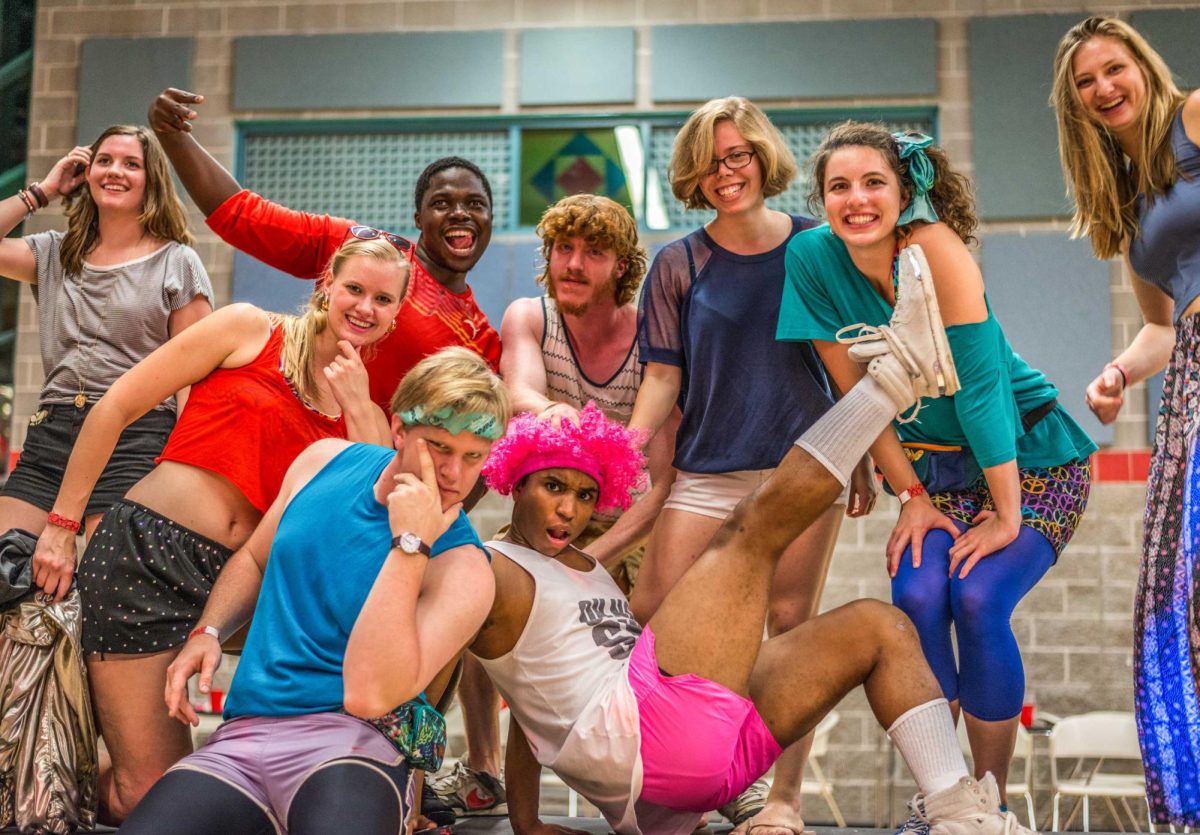As every contestant in any pageant can attest to, every truly good person wants world peace. World peace has become a distant, vague and seemingly impossible aspiration that people often group together with the invention of the time machine.
However, Ami Shrestha ’13 and Catie Scott ’10.5 are two students who studied and incited small-scale peace this past summer, as they familiarized their audience of the Peace Studies student presentations on Wednesday with their experiences abroad.
Shrestha’s “Peace in the Mountains” presentation worked to provide the means for a modern curriculum at a Tibetan monastery school in a remote area of Nepal.
“Education is the basis for a peaceful society,” Shrestha said.
Shrestha was awarded a $10,000 “100 Projects for Peace” grant from the Davis Foundation. Shrestha’s proposal was chosen by Grinnell College out of 67 proposals and then nominated for the grant. Most of the money went toward infrastructure, a trilingual library, computers—all of which were supposed to be tools to facilitate modern education.
“Modern education is important because it’s a way for these children to survive and be competent in modern society,” Shrestha said. “I was talking to the founder of this project—[Khenpo Tsewang Rigzin]—and he was saying that because he didn’t get a modern education himself, he could not really get his message out there because he could not speak English. He was limited in that sense. Also … it was really hard for him to adjust and understand the world, so he didn’t want the children to have the same experiences he had. He wanted the children to be better able to grab opportunities that he feels they should have.”
Shrestha also took the children on field trips to expose them to other religions in order to emphasize the importance of integrating spiritual values in modern society.
“These children are the future ambassadors of their religion and they need to understand other points of view in order to understand perspectives of people they are taking the message to,” Shrestha said.
Scott’s “Democratization and Peace in the South Caucasus” presentation was less service-orientated and focused on researching peace-building efforts. She interned for the Caucasus Research Resource Center, an organization that provides training and research opportunities for local senior researchers and students. It serves as an alternate means of support in light of the decrease in funding for certain educational opportunities in the post-Soviet.
“Considering the ongoing conflict between Armenia and Azerbaijan, the organization provides a forum where scholars in their respective countries can come together in academia and evaluate what can be done to promote peace,” Scott said.
Scott’s research was geared toward promoting social tolerance in the southern Caucasus, an area of intense ethnic conflict. She collected and analyzed data in relation to social tolerance. She provided statistical data, based on surveys that gave an overview of different groups’ attitudes toward friendships, business partnerships and marriages between each other. Most of her work was aimed at attempting to determine a resolution of territorial conflict between Armenia and Azerbaijan.
“I think the projects are important experiences. And I think an important part of that experience is that these students have experience presenting what they did,” said Val Vetter, Peace Studies Coordinator. “It’s also important that they share that with the Grinnell community. These are just two examples we think it’s important that the community knows about. But the opportunities are there for you. Peace Studies will support you.”
More information on applying for the David Grant.


















































